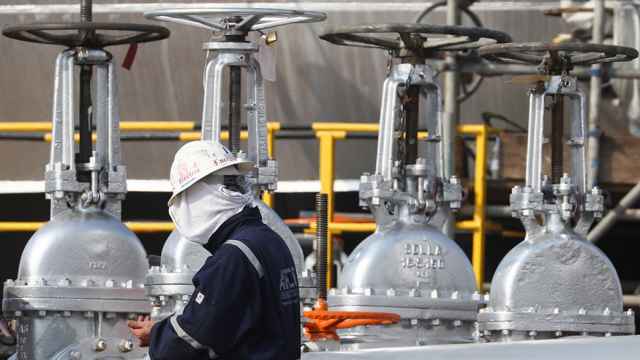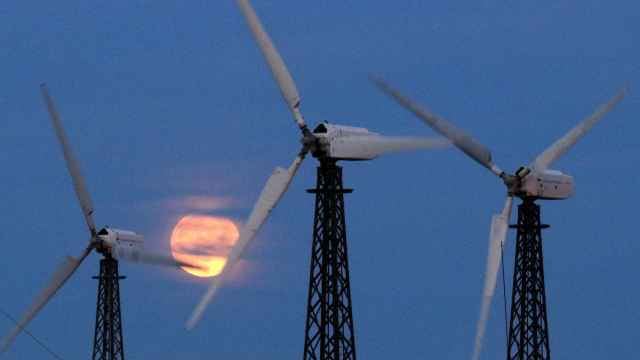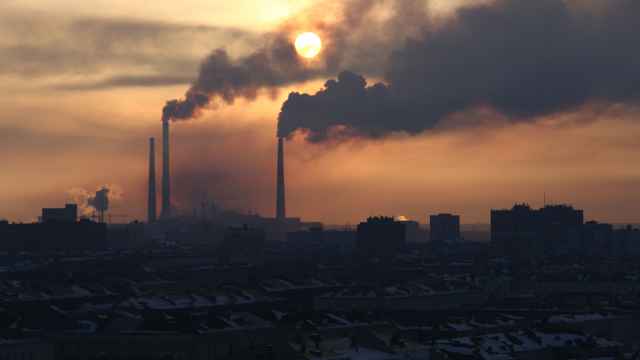The European Union’s planned carbon border tax could cost Russian exporters with a large carbon footprint at least 1.1 billion euros annually, the highest levy of any country, the RBC news website reported Monday.
The border tariff — proposed as part of the EU’s sweeping plans to tackle climate change and become the first carbon-neutral continent by 2050 — would be levied against countries that fail to take similarly aggressive steps to cut their own emissions. It would be gradually phased in from 2026, entering into full force in 2035.
Russia will likely pay more taxes to the EU than any other country, RBC cited its calculations as saying.
The tax will apply to nearly 7 billion euros’ worth of Russian exports, or 7.3% of Russia’s total exports to the EU in 2020, RBC said. The tax is expected to amount to 16% of the imported goods’ value, or 1.1 billion euros.
Russian iron and steel exports will be hardest-hit by the border tax, according to RBC’s calculations.
Russia’s Economic Development Ministry called RBC’s calculations a conservative estimate.
The European Commission’s proposals seek to make the EU's climate, energy, transport and taxation policies fit for reducing net greenhouse gas emissions by at least 55% of 1990 levels by 2030.
While Russia, the world’s top energy exporter, has committed to reducing its emissions under the Paris Agreement, it has been criticized for relying on the baseline year of 1990, when the Soviet Union’s collapse halted nearly all heavy industry.
Russia's required emissions reductions are as a result much lower than those of other countries despite it being the fourth-largest greenhouse gas emitter today.
The country also plans to increase its fossil fuel production in the coming years with an eye on the Asian market and has seen a tepid uptake in renewables.
Russia’s finance minister warned this month that the country must prepare for for major revenue losses brought by the global push toward renewable energy and subsequent fall in demand for fossil fuels.
A Message from The Moscow Times:
Dear readers,
We are facing unprecedented challenges. Russia's Prosecutor General's Office has designated The Moscow Times as an "undesirable" organization, criminalizing our work and putting our staff at risk of prosecution. This follows our earlier unjust labeling as a "foreign agent."
These actions are direct attempts to silence independent journalism in Russia. The authorities claim our work "discredits the decisions of the Russian leadership." We see things differently: we strive to provide accurate, unbiased reporting on Russia.
We, the journalists of The Moscow Times, refuse to be silenced. But to continue our work, we need your help.
Your support, no matter how small, makes a world of difference. If you can, please support us monthly starting from just $2. It's quick to set up, and every contribution makes a significant impact.
By supporting The Moscow Times, you're defending open, independent journalism in the face of repression. Thank you for standing with us.
Remind me later.






